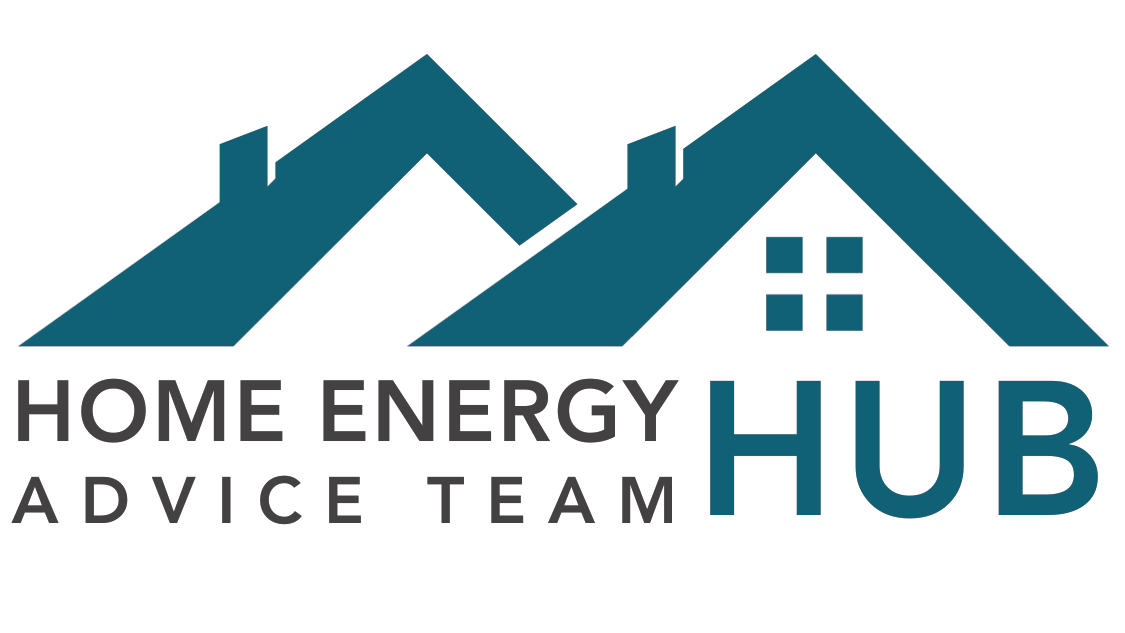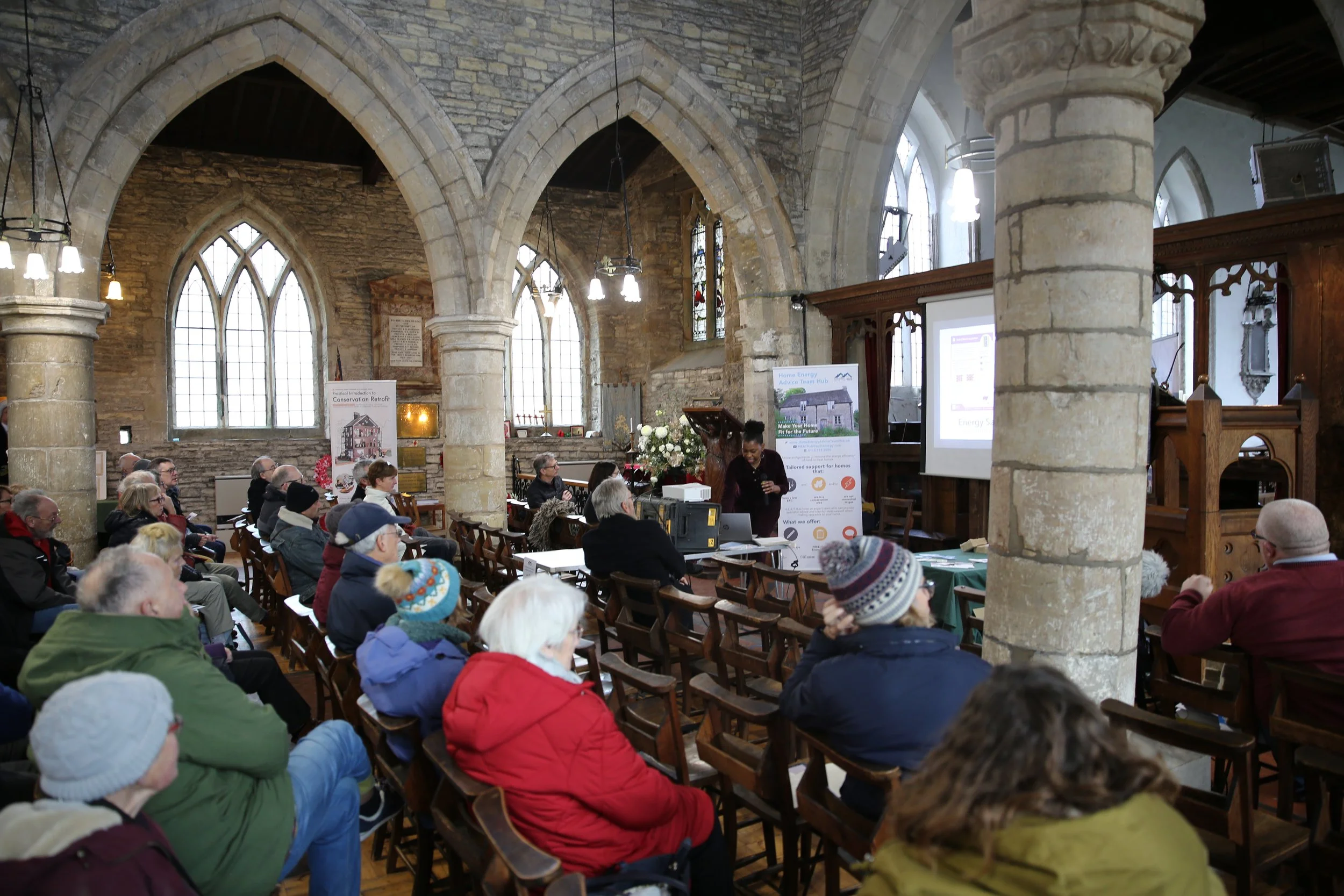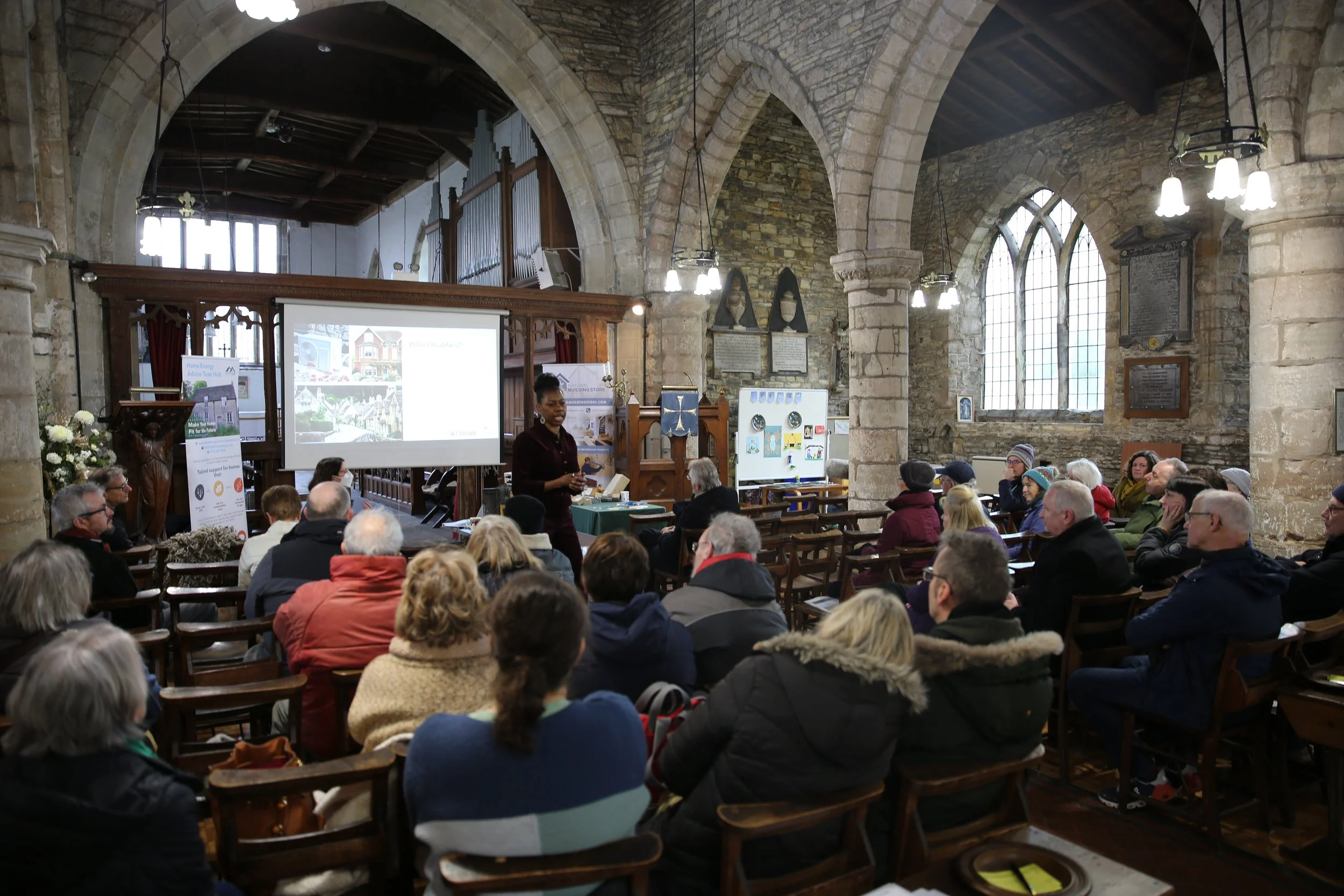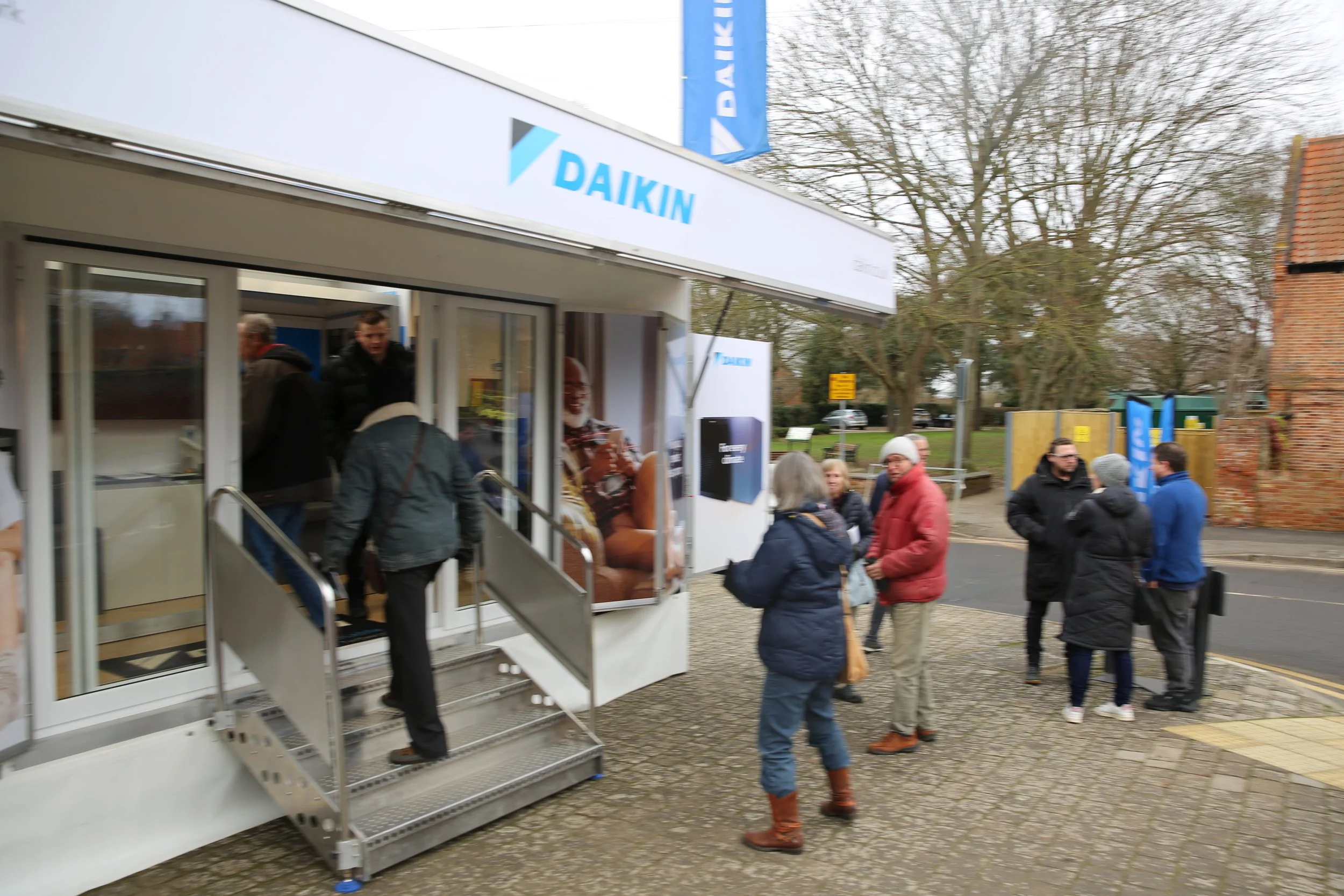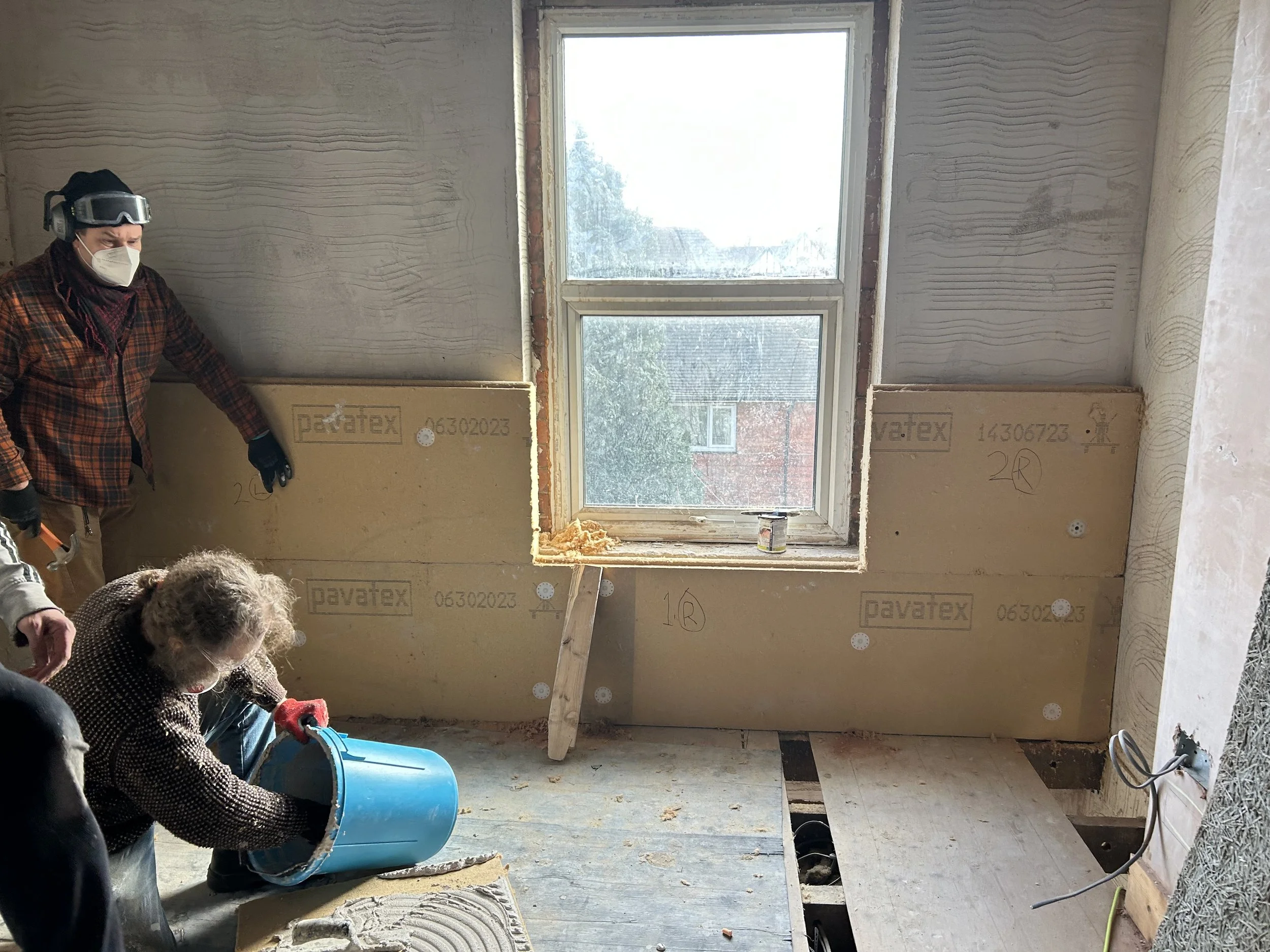Home Energy Plan & In-person Advice
“We wouldn’t be where we are today without the help of your organisation.”
Mr. B lives in a traditional semi-detached house in Bunny, Nottingham. It features solid brick walls, a solid ground floor, and a pitched roof with loft access. Additionally, the house has been extended to three sides, featuring various construction details such as insulated cavity walls, sloped ceilings, and internal insulation to its solid walls. It retains its original double-fronted exterior, historic glass windows, and original brickwork.
The property has an Energy Performance Certificate (EPC) and Environmental Impact Rating (EIR), both rated as D. It is classified as “hard-to-treat” under the H.E.A.T Hub project because it is located within a conservation area and has historic significance.
As a result, making upgrades or retrofitting the home is difficult and involves obtaining planning permissions.
Recommended Measures
Mr B contacted HEAT Hub as he was keen on improving the comfort and energy efficiency of the home, while also reducing energy bills. The survey conducted by HEAT Hub highlighted concerns regarding condensation and damp, which emphasised the need for improved insulation and ventilation. Mr B was happy to seek guidance before beginning the retrofit as he believed it to be complicated process. Additionally, Mr. B had an interest in Solar PV Panels, however was informed that they could not be installed due to planning restrictions, as well as the slate roof tiles which lack a waterproof membrane.
The free Future-Fit Home Energy Plan recommended solid wall insulation as a priority, provided a hybrid approach is applied, with internal insulation on the front and external insulation on the sides and rear to comply with planning guidelines. Other measures to consider were solid floor insulation, upgrading to a continuous ventilation system and an air source heat pump. These interventions, if thoroughly completed, would improve the Energy Performance rating from band D to C, with a potential 28% reduction in carbon emissions and 71% decrease in annual energy use. This would also significantly lower energy bills, making the home more cost effective to run.
Events & Workshops
As an active member of the residential group in Bunny, Mr B was also interested in organising a community seminar covering topics such as sustainability and renewable energy relating to carbon reduction.
In response to the clients’ interests, the HEAT Hub organised an event in Bunny which was attended by over 40 homeowners in the area. During this event, attendees heard from experts sharing information and advice on a range of different home energy efficiency measures. The event successfully educated community members about renewable technologies, with many considering installation for their homes. It also sparked a discussion on potential community initiatives, including wind turbines, solar panels and hydro generation as renewable energy sources to serve their homes.
Internal Wall Insulation Practical Workshop
Mr. B also attended a free DIY Internal Wall Insulation workshop at the NEP Hub. A major challenge for home retrofits in Bunny is securing planning permission. Mr B expressed disappointment at not being able to add external insulation to the front of the home, however attended the session to learn about internal wall insulation as an alternative.
Notably, an additional 14 households in Bunny have enrolled in the scheme with some already receiving their plans.
HEAT Hub’s in-person advice plays a crucial role in motivating individuals to adopt energy efficiency measures, empowering them to take proactive steps toward enhancing their home’s comfort and sustainability.
